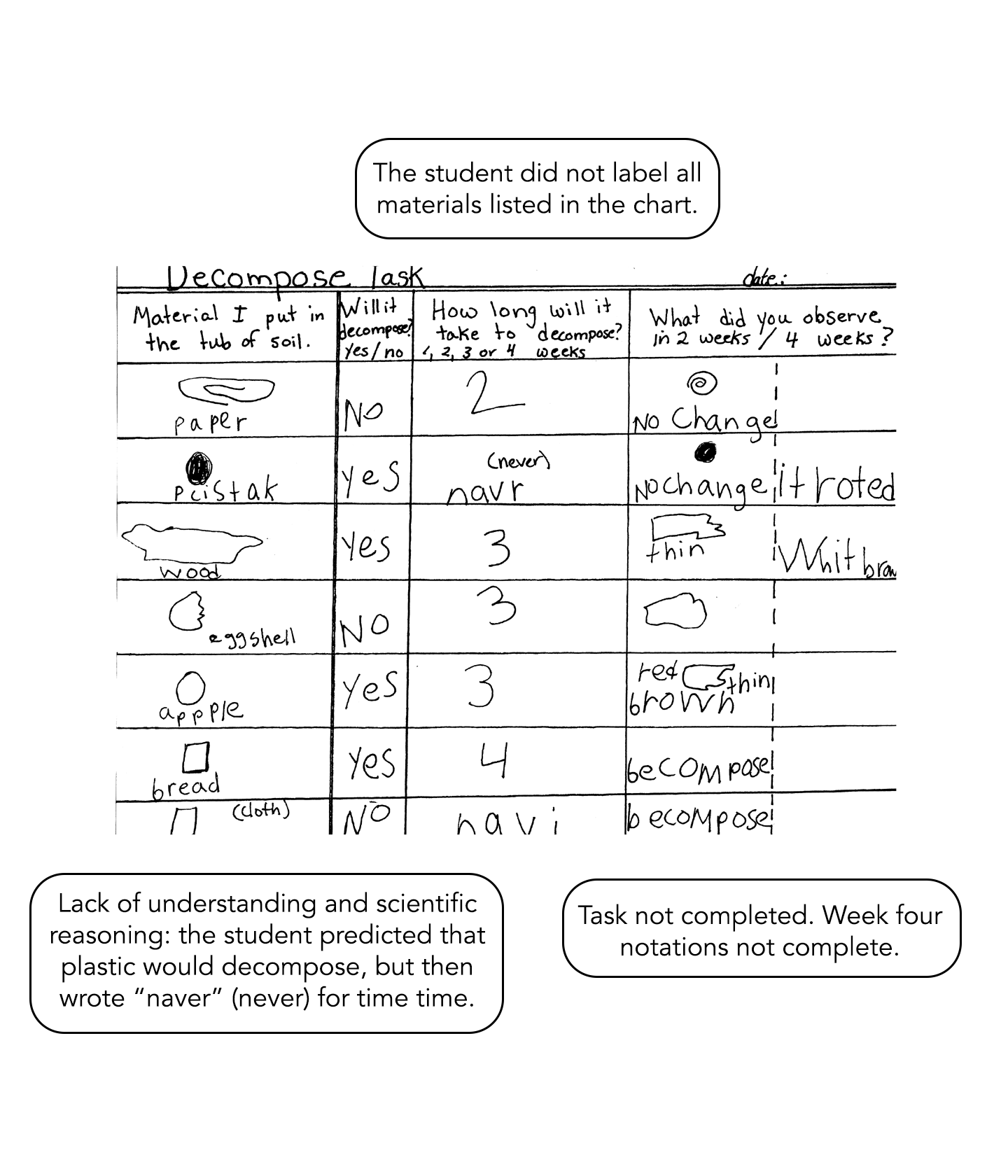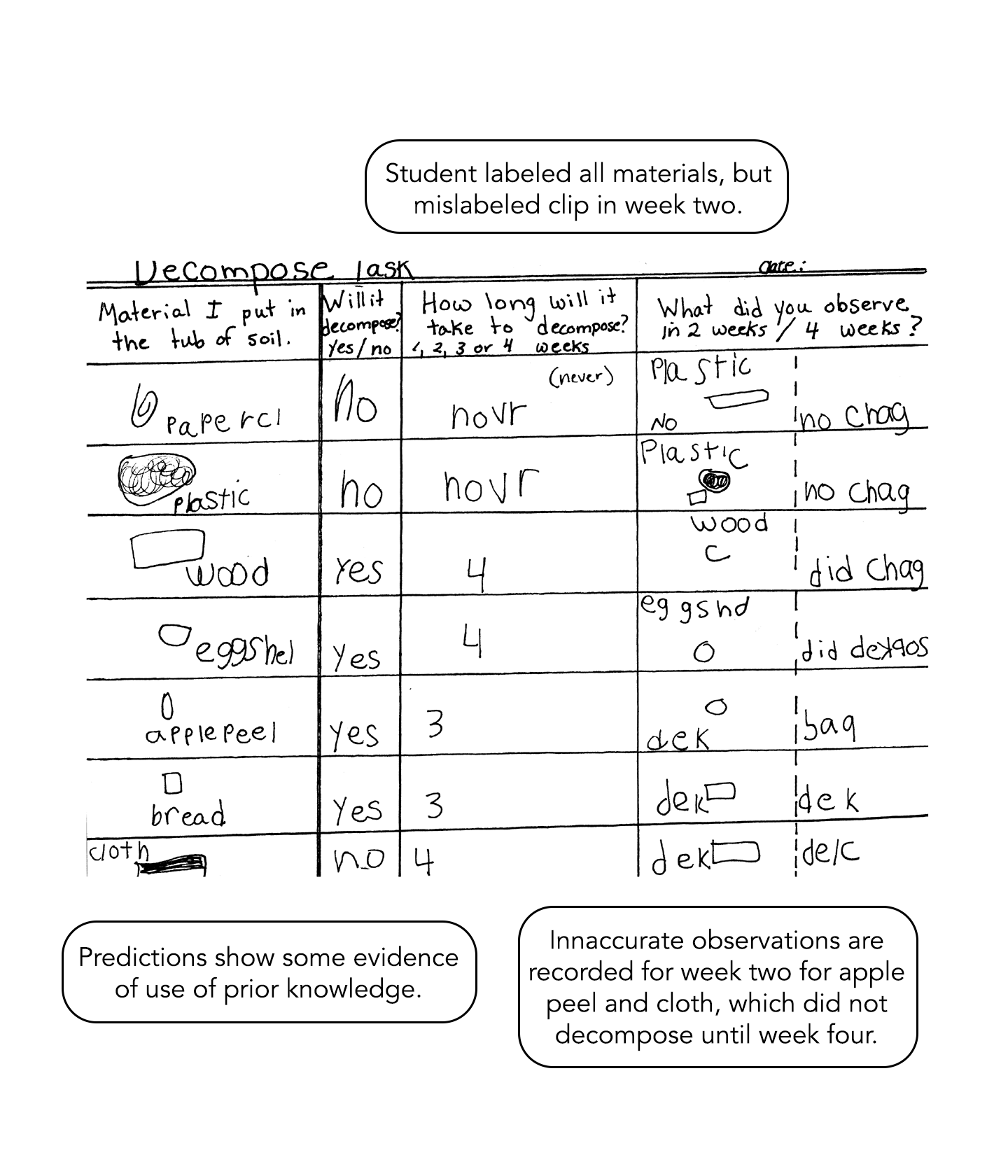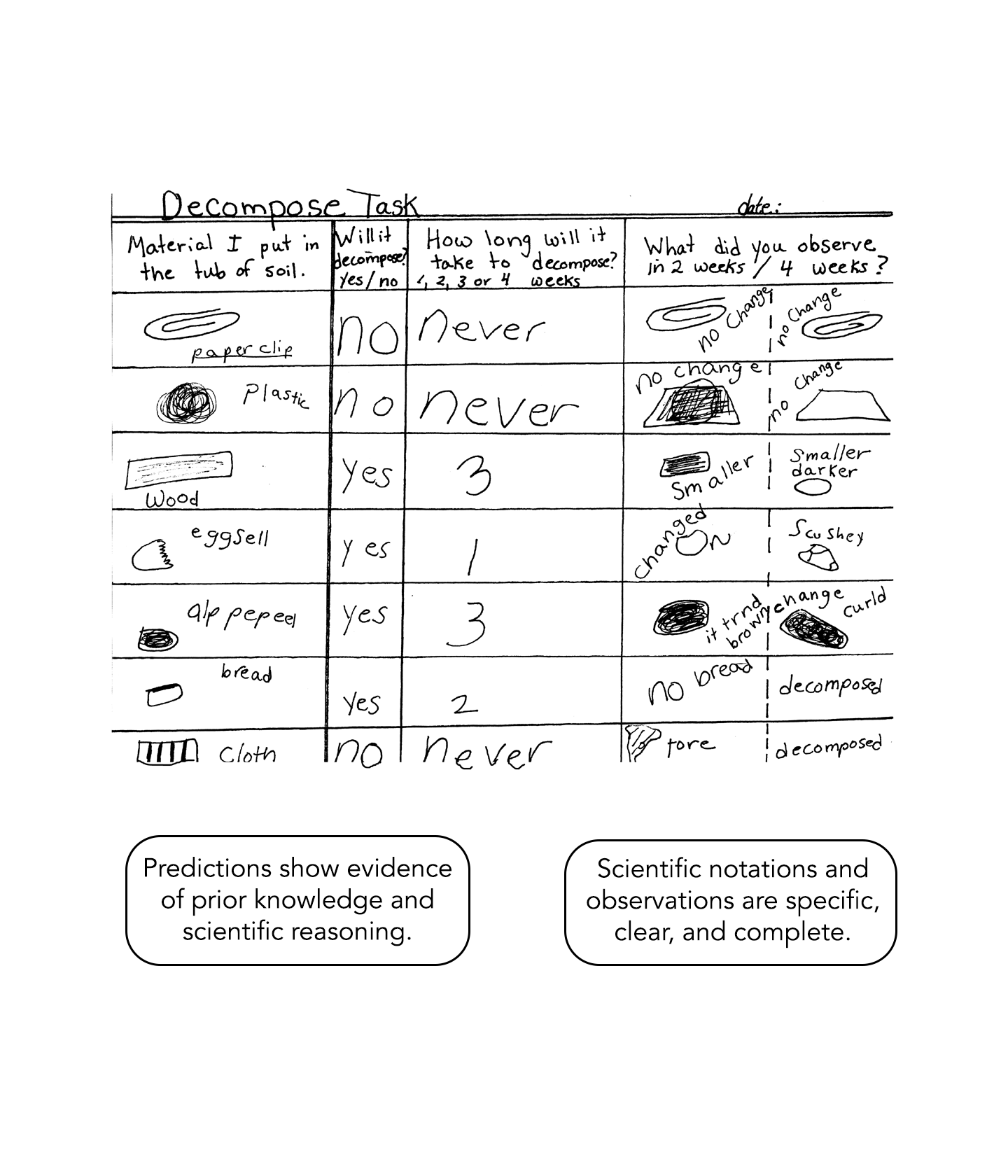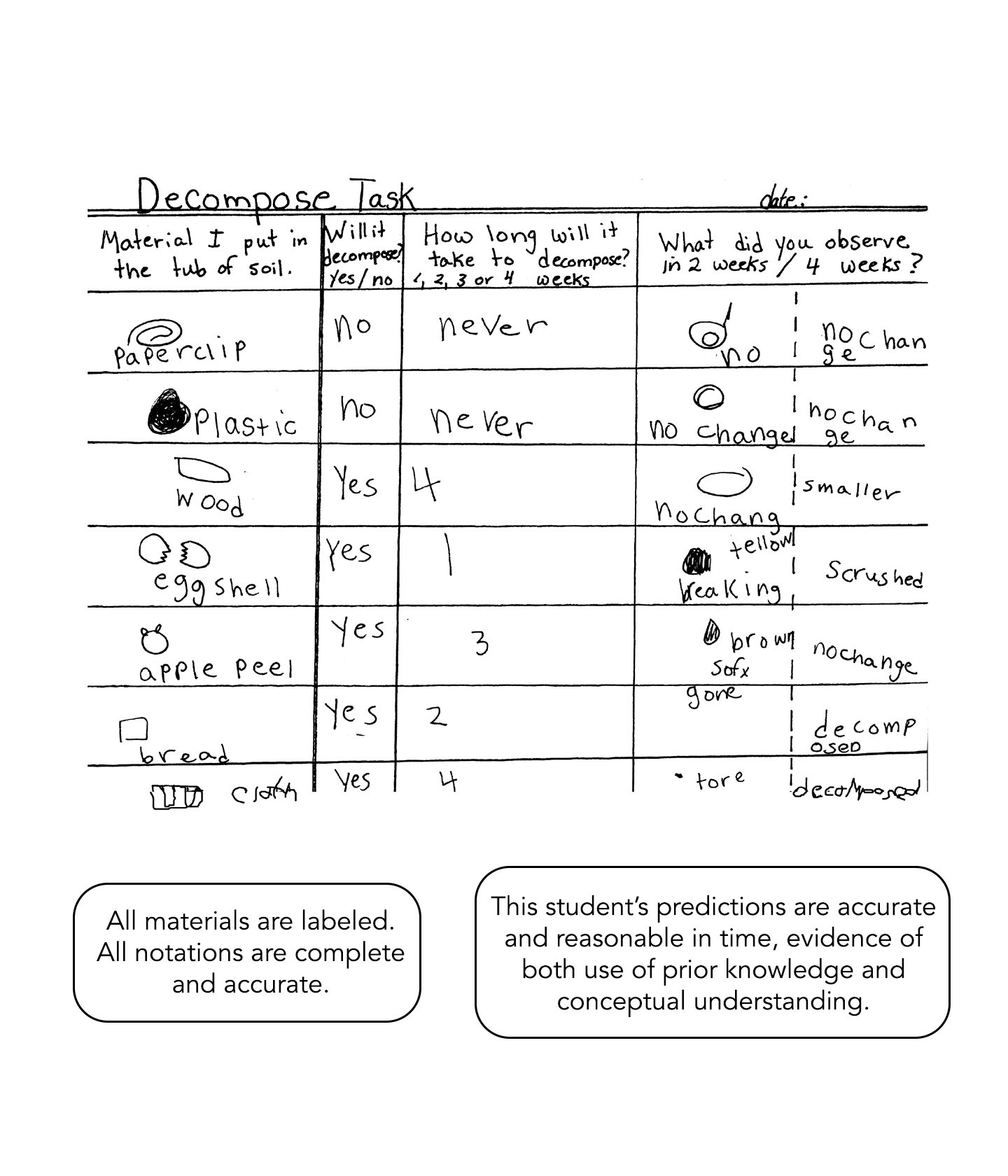Will It Decompose?
The United States generates almost 200 million tons of solid waste a year, so where does all of the garbage go? In this investigation, we are going to spend a month finding out if different materials will or will not decompose. We will be predicting how many weeks we think it will take for different material to decompose and discuss whether or not each material is healthy for the earth if it remains in the soil. We will observe and collect data on the materials in our tubs of soil at the end of 2 weeks and at the end of 4 weeks to verify our predictions and results.
Approximately 60 minutes.
Instructional Support Downloads
Task Write Up
- Cause and effect
- Change, constancy and measurement
- Evidence, models and explanation
- Interdependence
- Populations and ecosystems
- Properties and changes of properties in matter
- Populations, resources, and environments
- Ask a question about objects, organisms, and events
- Communicate investigations and explanations
- Employ simple equipment and tools to gather data
- Make observations
- Plan and conduct a simple investigation
- Use data to construct a reasonable explanation
- Comparison of attributes or effects
- Data collection, organization, analysis
- Graphs, tables, representations
- Measurement
Suggested materials
For their predictions, you can ask the children to bring in a variety of materials that have been discussed during the recycling unit. They may also bring in materials that we have not discussed.
I provided the students with the following materials for their tubs of soil: paper clips, red plastic margarine lids cut up, pieces of very thin wood, eggshells, apple peels, Styrofoam peanuts, bread, ripe banana slices, shavings, foil, paper-towel pieces, a dishcloth and uncooked macaroni. Next time I would include glass marbles for prediction and discussion. I would also extend prediction times for a possible response "between four weeks and never," in case students bring in materials such as orange peels, which take quite long to decompose.
Exemplars Rubrics
In this task, the students should accurately predict the materials that will decompose in their tubs of soil: wood shavings, eggshells, bread, cloth, apple peel, macaroni and paper towel. Some of the materials might decompose within the two weeks, but other materials may take the full four weeks or longer. The students should be able to identify those materials that will not decompose such as a metal paper clip, a plastic lid and foil. The thin wood might not fully decompose after four weeks. The student should be able to describe and record some observations about the condition of each material after two weeks and at four weeks.
Note: Some students might raise the question about the metal paper clip rusting, over a longer period of time. Oxidation does break down the metal; but this is different from decomposition, which is the effect of microbes acting on plant or animal matter and part of the food chain’s life cycles.
This student does not use scientific reasoning, draw from prior knowledge or make enough observations using the materials so that accurate conclusions can be made. The student recorded “yes” for the plastic, yet predicted "never" for the timeframe. The student was also confused with the eggshell and paper clip, which indicates that s/he does not understand the concept of decomposition. This student does not label all materials in the chart or complete the task. There are not enough scientific notations for the fourth week so that comparisons of decomposing can be made.
This student uses some understanding, prior knowledge and organizational strategies moving through the different columns and attempts to carry out most of the testing. The recordings demonstrate incomplete explanations and some inaccurate observations at two weeks. (The apple peel and cloth do not decompose in two weeks but do decompose at four weeks.) This student labels all materials in the chart, but some items are mislabeled. The student does not record the specific kind of changes at four weeks for wood.
This student shows a clear understanding of the science concepts involved with materials that will and will not decompose. The scientific recordings are organized and demonstrate a strategy that leads to completion of the investigation. This student makes accurate time predictions except for the cloth. This student accurately records observable characteristics of the different materials that are tested.
This sample is only subtly different from the Practitioner sample. This student shows a deep understanding, prior knowledge, steps used and data gathered in this investigation. All the predictions about decomposing and timing are reasonably accurate. There is an appropriate, specific recording for each two-week and four-week observation. This student is accurate about all the materials, which demonstrates clear scientific reasoning and conceptual understanding of the properties of organic and inorganic matter.






